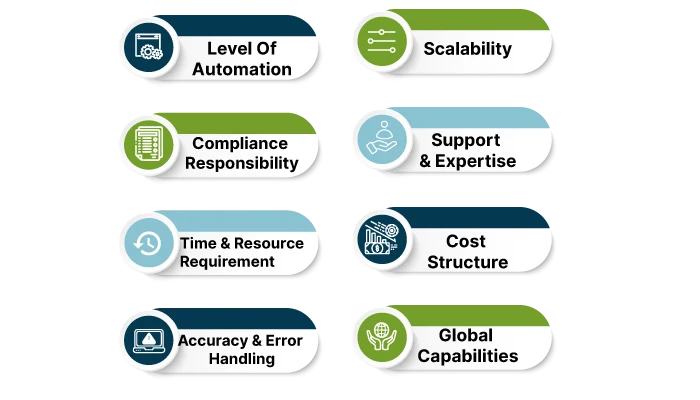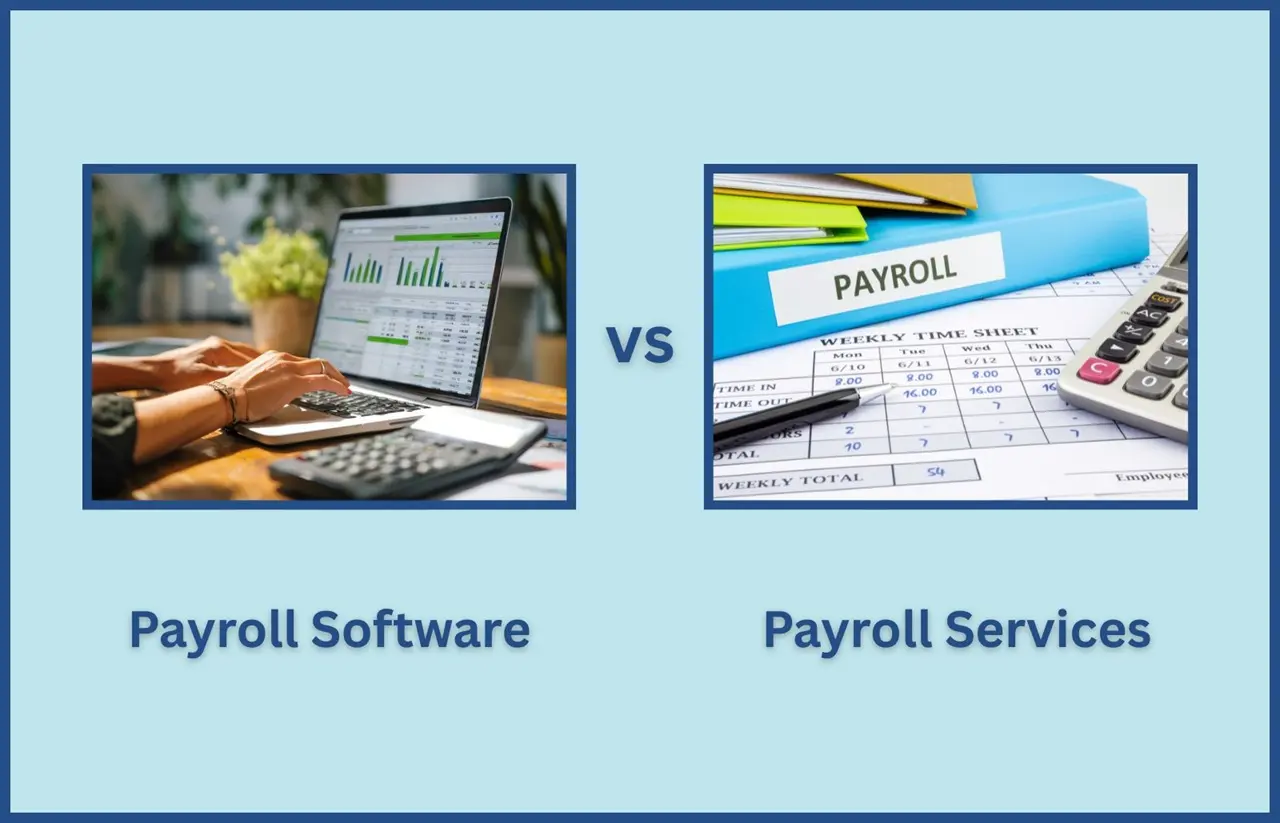Managing payroll isn’t just about sending salaries on time. It’s about staying compliant, avoiding costly errors, and ensuring employees across different countries are paid accurately.
As companies expand globally, the debate becomes even more critical: should you use payroll software or outsource payroll services?
This guide breaks down the 8 major differences between payroll software vs payroll services and helps you choose the right fit.
If your business hires or pays workers across borders, you’ll clearly see why modern teams trust Remire for global payroll and end-to-end HR operations.
What are the Two Types of Payroll?
Here are the two main types of payroll most businesses deal with:
1. Manual Payroll
This is when calculations are done by hand or using basic tools like spreadsheets.
It’s simple for very small businesses, but:
- Takes more time
- Has a higher risk of errors
- It’s not ideal when employee numbers grow
2. Automated (or Computerized) Payroll
This uses software to calculate salaries, taxes, deductions, and generate payslips automatically.
Businesses prefer this because:
- It reduces errors
- Saves time
- Ensures compliance
- Easily handles large teams
What Is Payroll Software?
Payroll software is a digital platform that helps automate the process of calculating salaries, deductions, and taxes and generating payslips.
It reduces manual work and allows HR or finance teams to run payroll internally with fewer errors.
Firms that prefer payroll control and have resources for compliance manage it themselves.
Features of Payroll Software
A standard payroll software usually includes:
- Automatically calculates salaries, deductions, and benefits
- Generates digital payslips
- Tracks attendance or integrates with HR systems
- Provides employee self-service access (ESS)
- Basic compliance alerts
- Payroll reporting and analytics
- Direct deposit management
Many tools in this category are built as payroll software for small businesses, offering basic automation and simple tax calculations.
What Are Payroll Services?
Payroll services involve outsourcing operations to external specialists. They handle salary processing, tax filing, compliance, reporting, and employee payments on your behalf.
This option is ideal for companies that don’t want the burden of payroll complexity, especially when operating across multiple countries.
Popular payroll service examples include Gusto Payroll, ADP, and other fully managed solutions.
Services Offered by Remire: Top Payroll Provider
A payroll service provider like Remire usually handles:
- End-to-end payroll calculation and disbursement
- Tax filing, statutory submissions & compliance management
- Benefits administration
- Local payroll regulations and updates
- Employee onboarding support
- Data management and reporting
- Customer support for employee payroll queries
If your company hires internationally, some payroll providers also offer Employer of Record and global payroll solutions.
Explore Remire’s Global Payroll Solutions
See how we handle multi-country compliance, payments, and reporting seamlessly.
Payroll Software vs Payroll Services: 8 Key Differences
Here are the major differences between payroll software vs payroll services, explained simply and practically:

| Feature | Payroll Software | Payroll Services |
|---|---|---|
| Level of Automation | Automates salary calculations, deductions, and payslips, but requires manual input from HR. | Fully managed; provider handles calculations, approvals, processing, and payments. |
| Compliance Responsibility | HR must stay updated on tax rules and labor laws and apply changes manually. | Provider manages all compliance updates, filings, and regulations, reducing risks and penalties. |
| Time & Resource Requirement | Requires HR or finance staff to manage data entry, run payroll, and fix errors. | Saves time; payroll specialists manage the full process from calculations to disbursements. |
| Accuracy & Error Handling | Errors must be fixed internally by your team. | Providers detect, correct, and prevent errors through audits and expert review. |
| Scalability | Suitable for small teams; may need upgrades or customization as business grows. | Easily scales across departments, locations, and countries without extra setup. |
| Support & Expertise | Mostly technical support for system issues and configuration. | Access to payroll and compliance experts for filings, audits, and country-specific rules. |
| Cost Structure | Lower upfront cost but higher long-term expenses due to HR workload and compliance risks. | Predictable service-based pricing with fewer hidden costs, ideal for global teams. |
| Global Capabilities | Usually limited to one country or requires separate tools per region. | Supports multiple countries with payroll, EOR, onboarding, and compliance in one ecosystem. |
Factors to Consider When Choosing Between Payroll Software and Payroll Services
Before deciding which option fits your business, take time to evaluate the following factors:
- Number of employees: Larger teams usually need more advanced support and automation.
- Countries you operate in: Running payroll in multiple regions requires local expertise that software alone may not provide.
- Compliance complexity: If your industry or locations have strict or frequently changing regulations, expert-led payroll services are often safer.
- Internal HR bandwidth: Do you have the time and people to manage payroll monthly? Or would outsourcing free up your team?
- Budget: Software may seem cheaper upfront, but compliance mistakes and manual work can quickly increase long-term costs.
- Need for global EOR or onboarding: If you’re hiring internationally, you’ll need more than software. You’ll need compliant contracts, localized onboarding, and in-country HR support.
- Long-term expansion plans: Growing businesses benefit more from scalable, fully managed payroll solutions.
If global hiring, compliance, or multi-country payroll is part of your roadmap, traditional payroll software simply won’t cover all your needs.
Choosing the Right Payroll Solution for a Smarter, Global Workforce
Payroll isn’t just another back-office function; it’s the backbone of employee trust, compliance, and smooth global operations.
When deciding between payroll software vs payroll Services, consider your team size, compliance requirements, and long-term growth plans.
When it comes to global payroll, multi-country compliance, onboarding, and end-to-end HR support. Remire stands out as the modern, all-in-one platform trusted by 350+ companies worldwide.
Hire the Best Payroll Service Provider

